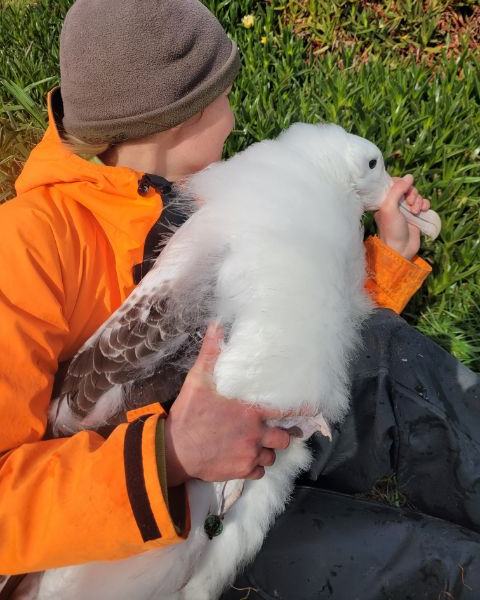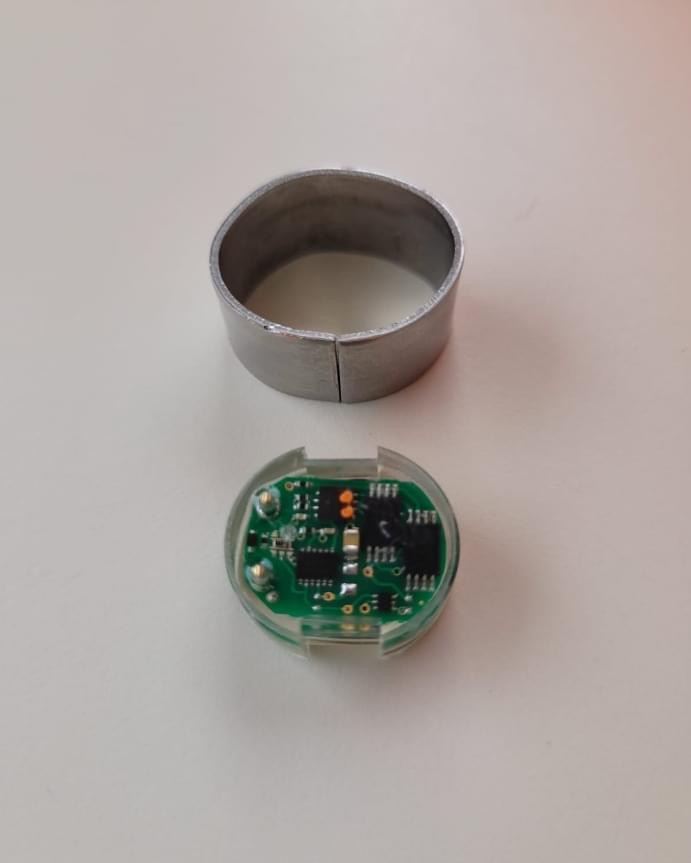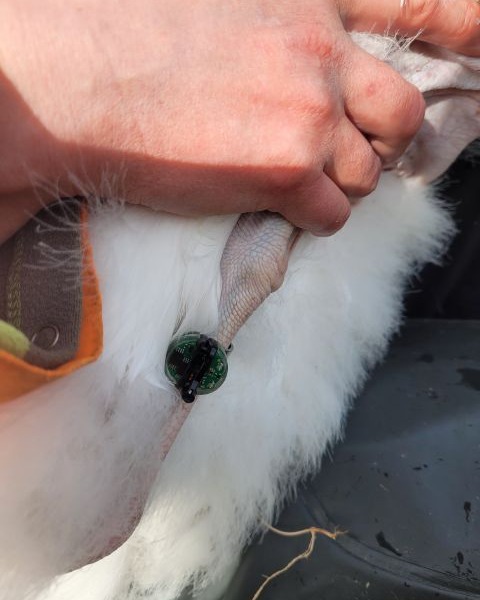
The GLS logger is visible below the hand holding the foot
Global Location Sensors (GLS) have been attached to 10 female and 10 male chicks of the 33 soon-to-fledge Northern Royal Albatrosses Diomedea sanfordi in the mainland colony at Pukekura/Taiaroa Head on New Zealand’s South Island. One of the male chicks is this season’s Royal Cam chick “Manaaki”. Unlike Global Position System (GPS) trackers where live locations are transmitted via satellite in real time, GLS light loggers need to be recovered and downloaded after the juvenile birds return to their natal colony as pre-breeders.

The small size of the GLS logger is obvious when compared to the metal leg band
The Royal Albatross Centre writes “Two great benefits of using GLS data loggers; their tiny size and the fact they can last three years, which means we can see where these birds go during their first few years at sea. GPS loggers are attached to feathers on the birds' back which are moulted within a year of fledging, meaning the tracking device is lost much quicker. This information will help us better understand threats faced by these birds at sea and to advocate for their conservation internationally.”

The GLS logger is attached to the metal leg band with a plastic cable tie
Juvenile foraging grounds will be compared between the two sexes for this globally Endangered and Nationally Vulnerable species that is at risk to longline fishing at sea. All 33 chicks are additionally carrying an alphanumeric band to allow for easy identification once they return (click here).
Information from the Facebook page of the Royal Albatross Centre. Photographs by Kalinka Rexer-Huber.
John Cooper, Emeritus Information Officer, Agreement on the Conservation of Albatrosses and Petrels, 15 August 2023

 Français
Français  English
English  Español
Español